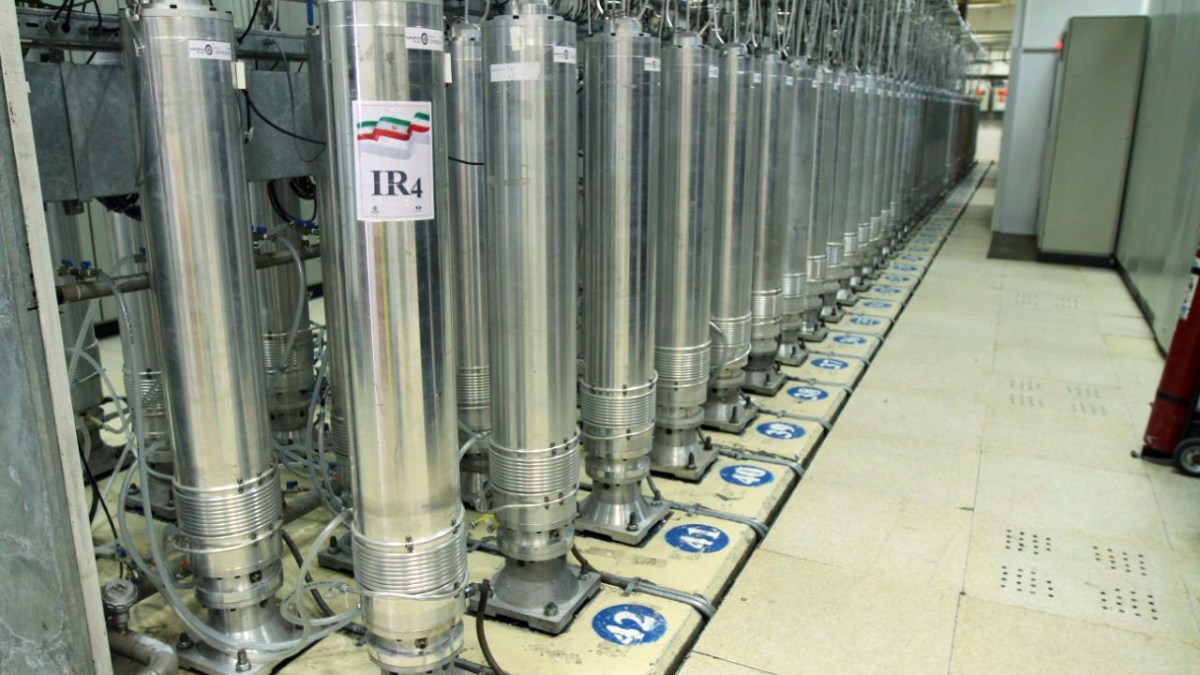A US intelligence report published today, Wednesday, said that Iran is not carrying out the activities necessary to produce a testable nuclear weapon, but it is close to producing the fissile material needed to produce this weapon, which Tehran has repeatedly denied that it seeks to acquire it.
The report added that Iran continues to increase the volume and level of enrichment of its uranium stockpile beyond the 2015 nuclear deal.
The US mission to international organizations in Vienna has accused Tehran of continuing to expand its nuclear program beyond the limits of the nuclear agreement.
The mission indicated that Tehran's continued production of enriched uranium by up to 60% has no reliable peaceful purposes, and it must stop this very disturbing activity, as it put it.
The US statements coincided with the ongoing regular meeting of the International Atomic Energy Agency's Board of Governors in the Austrian capital, Vienna, and came amid American and European concern over what the two sides call an accelerated Iranian escalation in its nuclear program.
The Council will discuss the report of the Director of the International Atomic Energy Agency, Rafael Grossi, after his visit to Tehran a few days ago, in which he talked about understandings with the Iranian side to resolve issues related to safeguards.
Earlier this month, the United Nations atomic agency said - in a report - that its inspectors had found uranium particles enriched to more than 80%, just under the 90% needed to produce an atomic bomb.
Tehran denied what was stated in the agency's report.
European concern
Meanwhile, France, Britain and Germany today, Wednesday, expressed - in a statement - their concern about Iran's announcement of installing more centrifuges and other advanced devices at the Fordow fuel enrichment plant.
The European Union also expressed its deep concern about what it described as the accelerated and alarming escalation of Iran's nuclear program, and urged Tehran to immediately return to its commitments, resume implementation of all monitoring and verification measures, and cooperate fully to clarify its activities related to uranium enrichment by more than 80%.
The representative of the European Union said before the Board of Governors of the International Atomic Energy Agency in Vienna that Tehran's actions have no reliable civil justification, and involve very high risks related to nuclear proliferation, as he put it.
For his part, Iran's representative to the International Atomic Energy Agency, Mohsen Naziri Asl, said that his country reserves the right to respond to any negative action taken against it.
Naziri affirmed Tehran's commitment to providing the Agency with the information it needs within the legally binding frameworks.
Pointing out that the recent visit of the Director General of the IAEA to Tehran was very important in terms of developing an action plan for the coming weeks and months.
In Ankara, Iranian Foreign Minister Hossein Amir Abdollahian said during a press conference with his Turkish counterpart, Mevlut Cavusoglu, that the unilateral sanctions against his country have lost their effect and turned into a worn-out weapon, as he put it.
In turn, the Russian representative to international organizations in Vienna, Mikhail Ulyanov, said that there is still an opportunity to restore the nuclear agreement through negotiations and called for a return to the negotiating table, in order to finalize the draft agreement.

